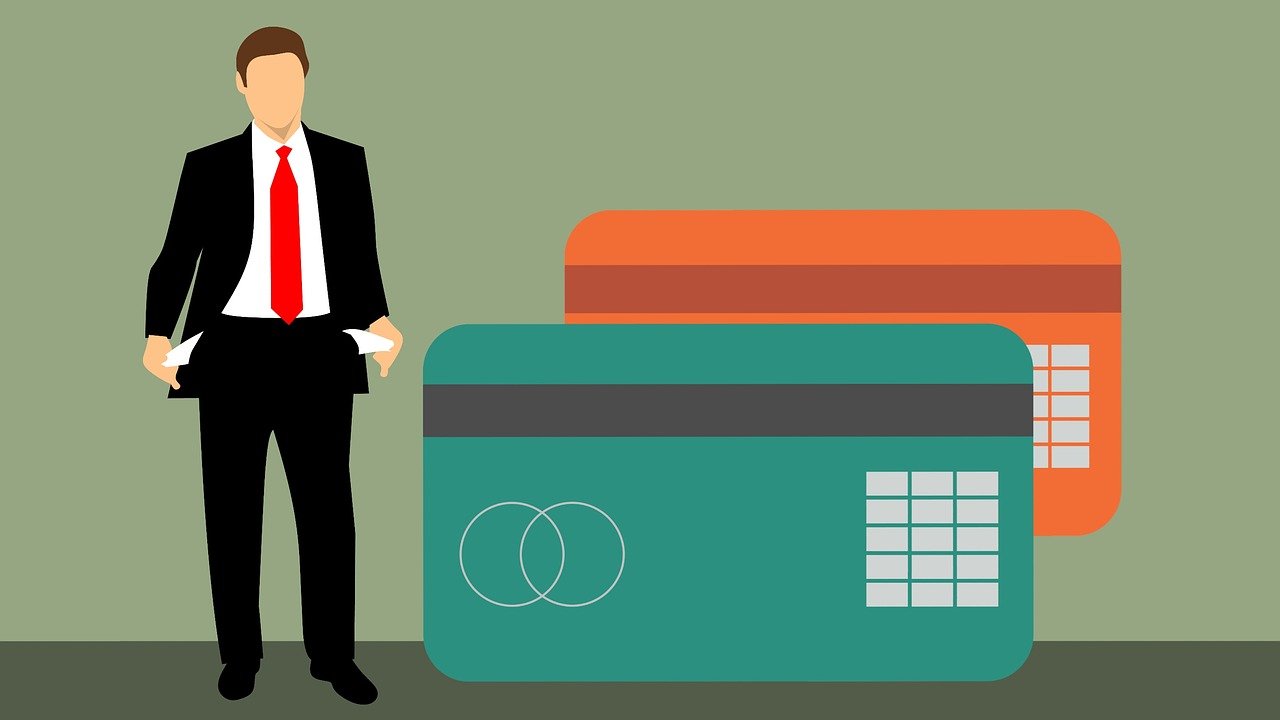
Below here some of the FAQ about credit card debt settlement:
What is Debt Settlement?
Many individuals have problems paying their debts on time. Or maybe, you are already behind on payments or cannot afford to stay current due to a financial or medical hardship. Debt settlement is a method to reduce those debts. Our trained debt negotiation specialists will negotiate with your creditors on your behalf to reduce your debt balances by 40-60%. We can also help you to avoid filing a costly bankruptcy.
How do I qualify for your Debt Settlement Program?
After you filled out our easy online application, a Debt Counselor will provide you with a free consultation, which includes a detailed and customized financial analysis to determine if you would benefit from the program. The last thing we want to do is put you in a program that will only provide temporary relief. Our goal is to eliminate your debt as quickly and as cheaply as possible. If you are in debt and have a legitimate hardship, chances are we can assist you. However, we do not accept everyone into our program.
Is this the same as consumer credit counseling?
No. Credit counseling has no effect on your principal balance. In credit counseling you repay the debt in full, at reduced interest rates. One problem with consumer credit counseling is that the payments are still rather high and it typically takes 5 years to pay off the debt. These companies also receive most of their revenues from your creditors - the very people to whom you owe money. In other words, they probably do not represent your best interests. After all, they are being largely supported by your creditors. While in credit counseling, you pay your debts through the counseling company. You will stay current on payments and probably not damage your FICO score. However, you will receive a negative mark on your credit report, a CC or Credit Counseling mark. This is viewed negatively by lenders and may damage your creditworthiness.
What about bankruptcy?
Bankruptcy is an absolute last resort. It will have an extremely negative and lingering affect on your credit report for 7-10 years. It will also carry a horrible stigma and may affect you in other ways such as employment. You do not want to file for bankruptcy if it at all possible. If you are employed, are serious about resolving your debt, and have enough discretionary income to resolve your debt over time, you should contact us for a free initial consultation.
How about a loan?
This may already be part of the problem and an additional loan can only compound matters. Could you even qualify? And if so, you may need to secure the loan with an collateral - a risky venture. If you default on a secured loan, you'll lost the collateral, which could be your home.
Who is your perfect client?
An ideal client:
- Has a debt problem he or she cannot resolve.
- Is having trouble staying current, is delinquent, or is close to being in litigation.
- Has a positive cash flow.
- May be considering bankruptcy, but would like to avoid it.
- Has a minimum of $10,000 in unsecured debt.
- Have some type of hardship (divorce, illness, job loss, etc.).
What is Unsecured Debt?
Unsecured Debt is not collateralized by property and commonly includes: credit cards, medical bills, commercial debt, personal loans, and consumer debt.
What is Secured Debt?
A Secured Debt is a loan where the creditor retains a security interest in an item of real or personal property such as a house. If you fall behind on this type of debt, the lender can repossess collateral in order to collect on their outstanding debt.
Will all creditors settle?
We look at each situation as being unique. We have established relationships with most creditors and know which ones are willing to settle and at what percentage. Our Debt Consultants will review the percentages we typically receive from your creditors and base their estimates on these. We will not accept into our program creditors that we cannot work.
What if I cannot afford to pay the settlement?
You are in control of what gets settled. If you do not have the funds available for a settlement, then no settlement is made. Sometimes an attractive settlement offer is reached earlier than anticipated. In these instances, we recommend you take advantage of the offer, if possible. You need to make an effort to eliminate your debt by following the plan we develop. We form a partnership to help you solve your financial situation. Without an effort on your party, you debt will not disappear and we cannot settle.
Do I have to include all of my debts in your program?
You can select which debts you would like us to resolve. We recommend that you include all or most of your unsecured debt. It is important that you tell our consultants about all other unsecured debt you have. It may affect our ability to negotiate if you make payments to a creditor that is not included in our program, while not paying creditors in the program.
How does this affect my taxes?
Debt settlements should be recorded on your tax filing. If a debt is canceled or forgiven, the debtor generally must include the canceled amount in gross income for tax purposes. It is considered forgiven debt and taxed at your normal rate. If you have three debts and each is settled in a different year, then you would only owe taxes in the year in which each individual settlement occurs. Example: You owe Creditor A $20,000 and we settle it for $8,000. You have saved $12,000. Your tax rate is 25%. You would owe $3,000 in taxes (25% of the $12,000). Even with the taxes, you are still saving $9,000 in this example. Depending on your financial situation, you may be able to claim insolvency and not owe these taxes. For more information contact your accountant.
How does this affect my credit?
It is important to point out that we do not report to the credit bureaus. However, your creditors may report that you are participating in a debt program. Clients will likely experience an adverse affect on their credit. No form of debt reduction will have a positive effect on your credit. In debt settlement, you receive an 'open delinquency' on your credit report because regular payments are not made to your creditors. However, once we negotiate a settlement, you will pay the creditor directly yourself, and the late marks will cease. Your credit report will then read 'settled in full'. Our program will certainly improve your debt to income ratio by eliminating debt. This ratio is used by lenders to evaluate your creditworthiness. Since your debt is being resolved by way of settlement, future creditors will see you have made a concerted effort to resolve your debt instead of filing bankruptcy. Remember, our program is a bankruptcy alternative so credit is a secondary concern. Our goal is not to improve your credit, but to get you out of debt as quickly as possible.
Do you pay my creditors or do I pay them?
We do NOT disburse funds to your creditors during the program. We are not a credit counseling program. The purpose of our debt management program is to settle your debts at a discount to the principal balance. While in our program, regular payments are not made to your creditors. We cannot negotiate meaningful settlements on current accounts. If you can afford to pay off your debts on your own, you should do so. Once you approve a negotiated settlement offer, you will then make settlement payments directly to your creditors from your settlement account. The settlement account is an account that you control at your bank.
How long will the program take?
The length of time necessary for completion of the program varies from case to case and will depend largely on your budget. Depending on the monthly payment you decide upon, the debt can be eliminated as soon as you can come up with the necessary funds. It could be as soon as 120 days. A typical program, however, takes 12-36 months.
Can my creditors sue?
Creditors maintain the right to use legal means to collect a debt. Some are more litigious than others. However, most will only sue if there is a lack of communication or they feel a consumer who can afford to pay, is trying to 'beat the system.' Lawsuits are not common but do occur. You should be aware that a creditor can only sue you if it retains an attorney in your state. Furthermore, it takes time and costs money to file. Lastly, even if a creditor were to take legal action, they can only collect what you actually have. A garnishment takes time and hinges on your employment. If you lose your job, the garnishment will temporarily cease. It is not easy for a creditor to attach to equity in your home and it may be protected by your state's homestead act. In summary, it is more cost effective for a creditor to settle than to pursue legal action. We work with your creditors to find a solution that will satisfy everyone before legal action is taken. While we cannot guarantee that legal action will not be taken, we are confident that our experience can avoid it.
I own a home with equity. How can this be used to help with debt settlement?
If you have available equity in your home we may be able to help you use this as a means to gather money for settlement more quickly. We have affiliations with several mortgage companies that are experienced in working with debt settlement companies. Ask your debt counselor for more information on this.
Will my information be kept private?
We are committed to maintaining complete confidentiality and privacy. Feel free to read our comprehensive privacy policy found on this site.
